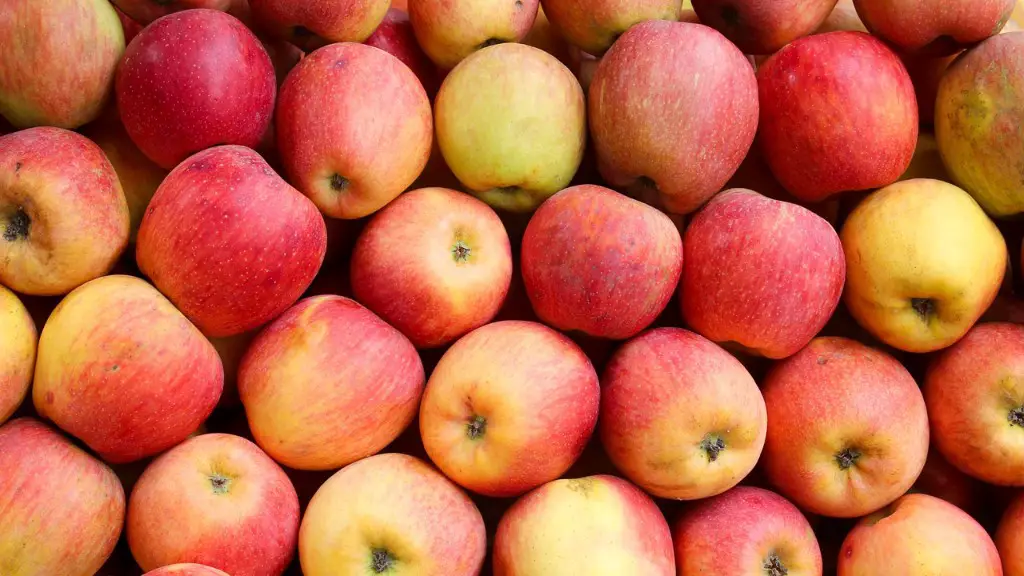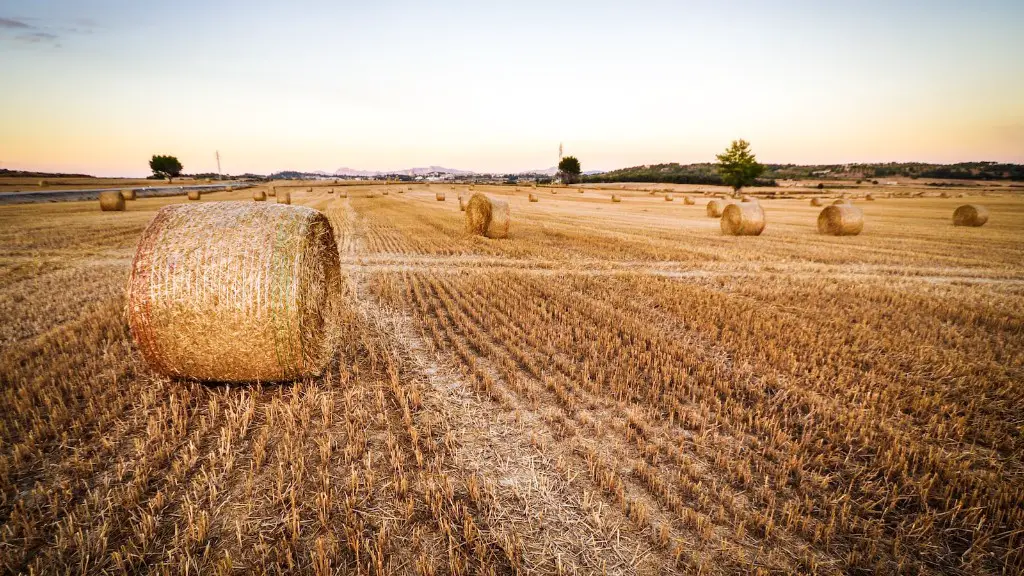Biology is the study of all living things, including plants. Agriculture is the cultivation of plants for food, fuel, and other products. The two fields are closely related because the success of agriculture depends on a detailed understanding of plant biology.
Biology is the study of living organisms and their interaction with their environment. Agriculture is the art and science of growing plants and animals for food, fuel, fiber, and other products. The two disciplines are related in that both draw on our understanding of how living things work to produce food, fiber, and other products.
Is agriculture a part of biology?
Agricultural science is a broad field that encompasses many different disciplines, including biology, economics, and social sciences. It is used to understand and improve agricultural practices. Agricultural science can help us to better understand how to grow crops, improve livestock production, and manage natural resources.
Engineering biology has the potential to revolutionize agriculture. By producing transgenic seeds with desirable traits, plants can be modified to produce speciality chemicals, biofuels, or other industrial products. Additionally, engineering biology can be used to create novel pest control strategies, making agriculture more sustainable and efficient.
What does agriculture mean in biology
The science, art, and business of cultivating soil, producing crops, and raising livestock; farming.
Biology is the branch of science that studies living organisms, their physical and chemical attributes, their molecular composition and their evolution. Agriculture is the practice of raising crops and livestock and the associated care of the soil and water.
Do I need biology for agriculture?
Most of the colleges and universities in India require students to take biology along with Physics and Chemistry in order to be eligible for admission to a Bachelor of Science in Agriculture. This is because biology is essential for understanding the basic principles of agriculture. By taking biology, students will be able to learn about the different aspects of agriculture, such as soil science, crop science, and animal science. In addition, biology will also help students to understand the basic principles of ecology and environmental science, which are both important for sustainable agriculture.
Biologically Integrated Farming is a great way to reduce the negative impacts of farming on the environment. By encouraging existing biological relationships within a farm system, we can help to preserve habitats, natural resources, and communities.
What science do you need for agriculture?
If you’re interested in studying animal science or veterinary nursing, you’ll need to have at least one science A level. Many schools and colleges prefer two.
Agriculture is essential for human life as it is responsible for producing food. Agriculture has been practiced for thousands of years and has greatly improved over time. Modern agriculture is much more efficient and allow us to produce more food with less effort.
What is a person who studies agriculture called
Agronomists are scientists who study plants and crops. They may specialize in plant breeding and biotechnology to improve crops. Many agronomists also utilize ecological principles to conserve and protect the environment from the negative effects of agriculture, a field known as agroecology.
Studying agriculture is a great way to develop a mix of technical skills and knowledge. You will learn about land use, farming practices, food production, crop and livestock science, and the use of farm machinery. You will also gain an understanding of sustainability and environmental management. This knowledge will be invaluable in your career as an agriculturalist.
Why agriculture is part of science?
There is no doubt that agricultural science can help countries adjust to healthier methods of food production. Scientists have been developing new high-yield varieties of crops that require fewer fertilizers or pesticides. Such crops reduce the need for using costly chemicals and help to preserve the environment.
Agriculture is the art and science of cultivating the land, plants and animals for the purpose of human sustenance. The four main branches of agriculture are livestock production, crop production, agricultural economics and agricultural engineering. Each branch is vital to the success of the agricultural industry as a whole.
Livestock production deals with the raising of animals for food, fiber and other purposes. Crop production focuses on the cultivation of plants for food, fuel, and other purposes. Agricultural economics deals with the economic aspects of agriculture, such as market conditions, pricing, and government policies. Agricultural engineering deals with the design and construction of agricultural facilities and equipment.
Each branch of agriculture is important in its own right, and each contributes to the success of the agricultural industry as a whole.
There are many different types of occupations that involve working with animals. Some examples of these occupations include an agricultural products sales representative, an animal breeder or husbandry, an animal geneticist, an animal nutritionist, an animal scientist, an aquacultural manager, poultry manager, or a veterinarian. Each of these occupations involves different duties and responsibilities, but all of them are important in the care and welfare of animals.
Agriculture is the backbone of many economies, both developed and developing. It is the main source of raw materials for industries, and a major contributor to international trade. It also plays a big role in a nation’s revenue, providing employment for millions of people around the world. Agriculture is crucial to a country’s development, and can also help heal the environment. In times of war, agriculture can be a vital tool, supplying food and other resources to the population.
Is agricultural science hard?
Agricultural science is a difficult subject with a low rate of honors. In 2022, only 58% of 6218 candidates got an H1 in agricultural science. In 2021, the rate was only 11% and the average score was 72.
There are many high-paying and demanding career options in agriculture. Agricultural operations managers oversee the daily operations of farms and agriculture-related businesses. They plan and coordinate the work of workers, oversee production and quality control, and handle customer service and marketing. Food scientists conduct research to develop new ways to process, preserve, and package food. They may also work to improve the nutritional value of food or to develop new food products. Agronomists work with farmers and other agricultural professionals to optimize crop production. They may conduct research, provide consulting services, or work in sales or marketing. Agricultural engineers apply principles of engineering to solve problems in the agricultural sector. They may design or oversee the construction of irrigation systems, agricultural facilities, or new farm equipment. Agricultural economists conduct research and advise policymakers on issues related to agriculture, such as crop production, farm subsidies, and land use. Agricultural lawyers represent clients in legal matters related to agriculture, such as crop insurance, water rights, and land use regulations.
What are the five skills in agriculture
Most employers agree that there are certain skills that all professionals in agriculture should have for continued success. These skills include: adaptability, interpersonal skills, time management and organisation skills, and tech-savvy.
Adaptability is a skill that is transferable from one place or industry to another. It is important to be able to adapt to changes in the workplace, as well as the ever-changing conditions of the agricultural industry.
Interpersonal skills are essential in any workplace, but especially in agriculture. You will be dealing with people on a daily basis, both in person and on the phone, so it is important to have good communication skills.
Time management and organisation skills are important in any job, but they are especially important in agriculture. There are often tight deadlines and a lot of moving parts to keep track of, so being able to stay organised and manage your time effectively is essential.
Tech-savvy is also an important skill for professionals in agriculture. With the ever-increasing use of technology in the workplace, it is important to be able to use computers and other technology to your advantage.
Agriculture is a vital sector of the economy and it plays a positive role in the improvement of the economy. It involves growing of crops and rearing of animals for family consumption and profit making. Agriculture has five branches namely; agricultural engineering, agricultural economics, animal husbandry, horticulture and agronomy. Each of these branches has a different focus and they all contribute to the development of the agricultural sector.
Warp Up
Biology is the study of living organisms and their functions. Agriculture is the art and science of cultivating plants and animals for food, fiber, and fuel.
Biology is related to agriculture in many ways. Agriculture relies on biological processes such as photosynthesis and nitrogen fixation, and the study of biology can help farmers to understand and optimize these processes. Additionally, biology is essential for the development of new crop varieties that are resistant to pests and diseases, and that can thrive in different climates. Ultimately, biology plays a vital role in agriculture, and the two disciplines are deeply intertwined.





